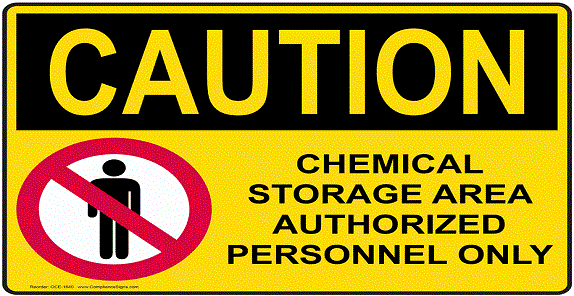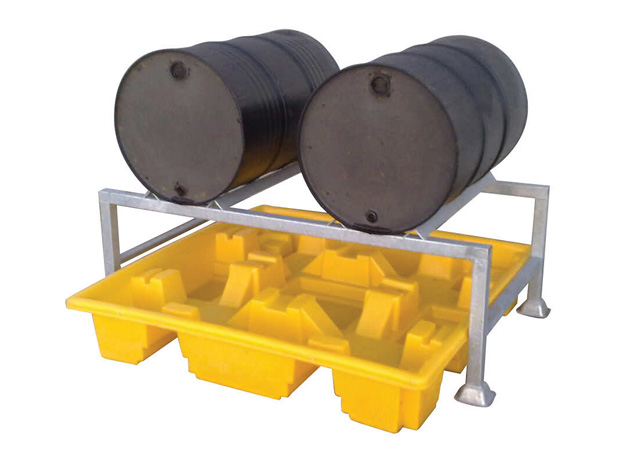Any organisation that manages, uses, dispenses or stores chemicals or hazardous substances should evaluate their need for bunded storage to minimise the risk of potential spills to people and the environment. Technically, a bund is an impervious embankment of earth or a wall of brick, stone, concrete or other suitable material that acts as a barrier to retain liquid. Commonly, the entire bunded area is referred to as the “bund”, since it’s the primary component of any spill containment system.
Bunded drum storage is designed to contain leaks or spills of liquids used, processed or stored above ground. Bunded storage cabinets can also help facilitate the clean-up of such spills. The correct and consistent use of bunded storage can help prevent injury to employees and contamination or destruction of the environment. Additionally, bunds can provide fire protection and be used for product recovery and process isolation.
To identify a need for bunded storage, answer these five key questions:
1. What is the level of chemical risk at your site?
The level of risk posed to the environment and employees by the chemicals you use and store onsite is the main factor in determining whether you need bunded storage and how sophisticated your bunded storage solution needs to be. This determination requires a site-specific evaluation to identify:
• the type of materials being used and their potential impact on the environment
• the ability of your facility or storage system to prevent spills
• the risk of a leak or spill occurring
• the duration of any temporary storage
• the sensitivity of the environment

2. What is the drainage situation at the site?
If the area around your facility drains to the sewer or a wastewater treatment plant, you should use bunded storage cabinets and chemical stores. Beyond causing damage to the surrounding environment, toxic substances can also damage the wastewater treatment process. All sites should maintain, distribute and practice emergency plans for the containment of chemicals both on- and offsite.
3. What type of facility is it?
In general, any facility that stores, transfers, processes or disposes of chemicals should follow local guidelines on the use of bunded storage, including facilities for storing pesticides and petroleum. Facilities used to transfer stored chemicals, such as transport facilities, also qualify, as do sites with electrical transformers that contain oil or PCBs.
In some cases, facilities that use or store liquid that is not obviously harmful should also use bunded storage. For example, because of its high biological oxygen demand and solubility, milk can potentially cause even more damage to the environment than oil. Milk processing plants, wineries and breweries should use bunded storage, as should any other facility that stores liquids other than water or uncontaminated storm water.
4. How much of each chemical are you storing?
It’s important to know the volume of the chemicals being used, processed or stored at your facility to ensure your storage bund is adequate. The net capacity of a bund should be at least 110% of the capacity of the largest container in the bund. Interconnected tanks should be treated as one single tank when calculating the bund size required. Note that incompatible chemicals cannot be included in the same bunded storage solution.

5. Are you dispensing chemicals onsite?
Bunded storage and spill containment systems are especially important in processing areas and any location where spills are common, including transfer points, workshops, factories, service stations and wash bays. Whenever a material is being transferred from its original container, the potential for a leak or spill is greater. Common bunds in these situations include short brick or concrete walls, “speed humps” or grading the ground toward a lowered collection point or “sump”.
With proper handling and adequate bunded storage, you can minimise risk and maximise productivity at your facilities. If you’re in the market for bunded chemical storage, IBC bunded storage, bunded storage cabinets and more, contact the team at Safety Storage Systems UK. We can help assess your needs and recommend a bunded storage solution for you.